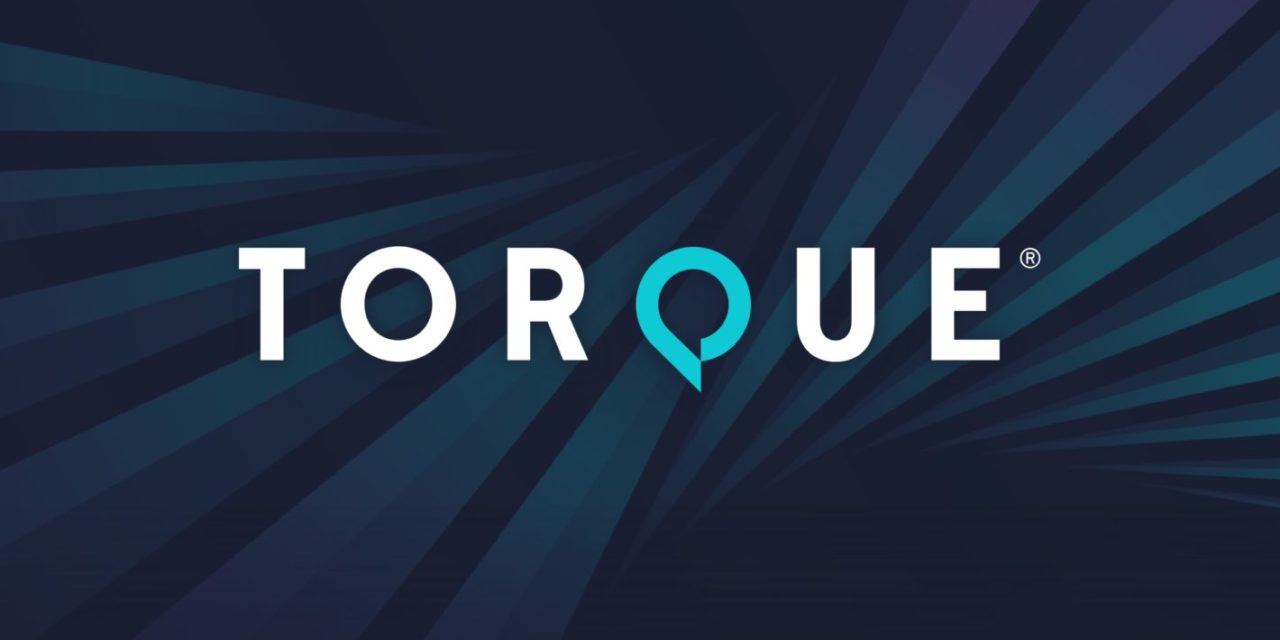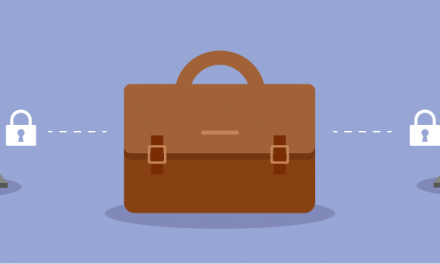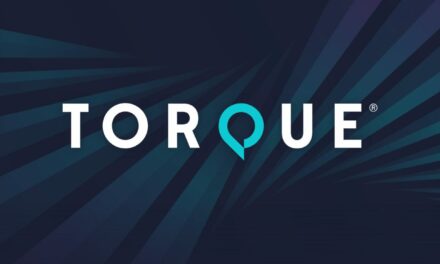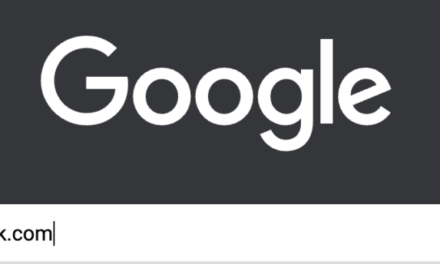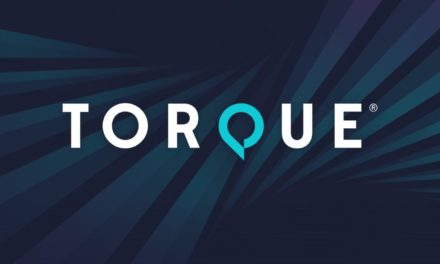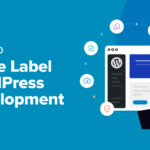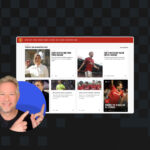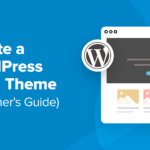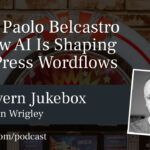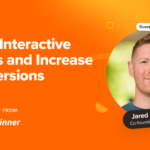Welcome to Press This, the WordPress community podcast from WMR. Here host David Vogelpohl sits down with guests from around the community to talk about the biggest issues facing WordPress developers. The following is a transcription of the original recording.
David Vogelpohl: Hello everyone and welcome to Press This the WordPress community podcasts on WMR. This is your host, David Vogelpohl, I support the WordPress community through my role at WP Engine, and I love to bring the best of the community to you hear every week on press this as a reminder, you can find me on Twitter @wpdavidv, or you can subscribe to press this on iTunes, iHeartRadio, Spotify, or download the latest episodes at wmr.fm. In this episode we’re gonna be talking about traffic building from zero for brand new websites very challenging thing to do a conversation with someone who’s done that many times, like walking depress this Mr. Adam Riemer.
Adam Riemer: Hey, thank you for having me, David.
DV: So glad to have you on again ADAM You were on in the past, and I actually don’t remember the topic we covered last time, but I am really curious to hear your philosophy and techniques around taking brand new websites and starting to build traffic. For those unfamiliar with Adam. He’s kind of a multi decade seasoned Digital Marketer, and it’s funny that Digital’s that old be able to say that now. Calm free frequent conference speaker places like PubCon and affiliates I’m a man who runs a company called Adam river marketing it’s funny you got a job there Adam was very lucky. And what they do, they’re really helping folks with the digital marketing strategy. So Adam, I’m gonna go ahead and kick it off and I know I’ve asked you this question in the past and your prior episode that I did I do not remember your answer, I doubt anyone listening to either so they asked again. Briefly tell me your request origin story.
AR: I was sitting at a think tanks type of conference, probably the early 2000s, or somewhere around there. And someone was mentioning CMS systems and I wasn’t really sure what that was because at that time I was hand coding HTML pages and adding new menu navigation and everything by hand. And they demonstrated it, and it was fantastic. And so I started switching sites over to WordPress, that I knew. Yeah, there was our Brian Middleton conference right it was invite only imply a bunch of us out to just sit around and give feedback, I’m sure so.
DV: Okay, gotcha. And so you’re there, you’re kind of hand building you’re in digital at the time but working with hand coded sites, CMS is a foreign term to you at this time, he said this You think this was like the early 2000s, like WordPress was created in 2003, so presumably that by 2003 to 2005 like that timeframe,
AR: probably closer to 2006 or 2007, actually, because I was leaving my last real job. Before I started to go out on my own. So yeah, I was probably closer to the mid 2000s
DV: Yeah, so this is right around the time when plugins and themes have just been released, it was pre what’s called custom post types which I consider to be the moment when it became the CMS, but it was funny to hear folks talking about it as much, even back then. That is a really interesting origin story out of a somewhat unique we’ve had a lot of similarity over the years here on these origin stories but I think that’s the first think tank story for sure.
AR: Yeah, I mean the biggest selling point for me was never having to update 50 to 200 Pages for every blog post said right if I didn’t do a new category if I’d want to link it through I’d have to go back to everyone individually. So having that automated was just massive for me.
DV: Oh wow, so like the time saving element that definitely leads from the content editing perspective is unique for the show to date. That’s pretty interesting. I’m sure that was a huge draw for you back in the day. Now, in your introduction I had mentioned that you run a company called Adam river marketing and made a joke we were lucky to work there and guessing it because it’s your company. Could you tell us a little bit about what Adam Riemer marketing.
AR: Yeah, so we do a lot of digital strategy as you said, we do a ton of SEO work you do ethical affiliate management, we do monetization strategy. We also work a lot on conversion rate optimization. And although that’s a big term, it just means providing the best user experience from a content and answering questions above product or above a call to action to making sure that mini cart and the checkout process is fluid, making sure that everything has a reason to exist on the site and removing the things that don’t have a reason to exist. And that’s what the core focus of our company is to and part of that was working with WordPress site owners to help them monetize to help them funnel their traffic and to help them scale their traffic.
DV: So your focus, you mentioned was on like CRM conversion rate optimization. We’re talking about traffic generation today, you view those two is like intricately connected or how do you think about that just in general, relative to the services you’re providing.
AR: Absolutely. They are definitely interconnected, and the reason is, once you get traffic into your website, what do you do with it and how do you actually get it to turn into a newsletter subscriber turn it into a sale if you’re using WooCommerce or one of the other commerce plugins, and then how do you actually get more traffic from that source once you get to converting, so bringing traffic to your site is important but what you do with it while on your site is more important, because that’s where you actually make your money and build your audience, and it doesn’t matter if you’re selling CPM impressions, if you’re doing a cost per click model, or if you’re selling physical product and building a Newsletter Lists in your community.
DV: So if I’m building let’s say a news site that the idea there is that I’m going to design a site that I have created or have a developer code it. And then, I’m gonna establish essentially a funnel, and your observation is that while you’re creating that funnel and then over time while you’re proving it, and traffic generation, in fact guessing also which traffic you’re generating from is sounds like for you and I’m guessing a lot of other folks just like part of that overall strategy around CRM, you said is what most people do, but there’s one important thing missing from there.
AR: And that is knowing what your site’s about and knowing the topic before you even start to think about traffic, you have to know what you’re going to be creating content for who your audiences, and then you start to think before you even go into design before you outline the content of the topics, where does this traffic exist. So for example if you’re going to be doing something with graphic you know you’re going to need you to, you know you’re going to need Pinterest, Google could be important for you but it actually might not. You probably also going to need to influence her traffic for that. And what you’re going to want to do then is go and experience for crafting, and that means you’re going to have a heavy reliance with your design on mobile traffic coming in so people that are in their studio, they’re not going to want to move a computer around or if they don’t have one, they’re going to have an iPad or iPhone to follow along and to find instructions very quickly, your website or your blog is also going to have to host a lot of images, so you know you’re going to need to compress those down you know you’re going to have to use Jesus to transfer your CSS files and everything else and you know you’re going to have to create a big experience. The same goes with food bloggers you know you’re going to have to be able to click to download share and save versus something that’s built for Google, what you’re doing with Google as you’re worrying about how things move and shift around your pages. You’re worrying about providing clear and direct answers and having a lot of good content that adds value, You’re gonna need to worry about schema and other things if your goal is SEO. So I always start with what is the topic, and where does that traffic exist. Now how do I design and how do I start building the website for those specific types of traffic and those channels. I feel like $100 million company they have zero SEO traffic. We’re doing it through paid through marketplace through social through influencer. Now we’re just starting to move into SEO, after they’ve already hit my figures.
DV: I love it. Forget slow clap right here on the air, because I think like as I hear teams get into projects where they’re building on a site or you’re trying to optimize for conversions, it’s like they come in with a lot of opinions about why they think a certain approach is correct and then they make, quote, the perfect thing and then kind of put it out there and see what happens. But it’s funny because like when folks come to me and say, What would you do about this webpage or how would you make it better. I would say who’s the audience, where’s the traffic coming from because I feel like I can’t even answer the question until I knew that. And I think, you know, a lot of design and dev teams just skip right over that where’s the traffic coming from, are they kind of have this picture in their head of the persona of the person that’s going to use the page and you know maybe it’s informed by research but it’s like fundamentally not really connected to where, where real visitors real buyers are gonna come from. So if I like that’s, again, kind of a rare commodity, as folks think about, you know, CRM, pages. Projects are just generally building out improving the Site Bravo for me I’m now at Adam, I want to dive into though more into details specifically around the projects. Brands undertake when starting a site and driving traffic but we’re gonna take a quick break and we’ll be right back.
DV: Hello everyone welcome back to press this WordPress community podcast on WMR we’re interviewing Adam Riemer out traffic building from zero for brand new websites, how to right before the break we were talking a little bit about looking at where visitors are going to come from before designing a website or doing a CRM project very sound advice in my view. Next question though is like, how often do you ultimately work with brand new sites and what are some of the typical challenges they face though is like I’ve launched this new thing now I gotta go get traffic from it my content doesn’t come up for you and then when it does, what are the challenges that this brands face.
AR: I have at least one of those websites or stores, or blogs coming at me, weekly, sometimes daily, just depends on the season. And the biggest question is, why did you build this, and I need to figure out what the end goal of the owner or the marketing team is sometimes it’s a company that has a lot of VC funding but didn’t think it through and they just had to get something alive. So it’s just breaking it down to okay what is our end, where do we have to go and what are our milestones, the map out the milestones we figure out where’s our easiest way to start building the audience and where’s the easiest way to start obtaining obtaining the traffic from and from there we start to put the plan together but without knowing the goal, you can’t even start anywhere. So it’s mapping out your milestones.
DV: Yeah I think that’s another salient point this notion of like well what is your objective like what are you trying to do, having helped you to attend to people besides myself it’s funny how are rare, folks actually had a good answer for that. But when you press NASA questions they ultimately did, I noticed that you said like, look, okay we’re trying to understand what the end goal is, we’re trying to understand what product or service is about where my. Where are my traffic coming from typically for like that kind of thing. You talked about like trying to identify the easiest ways to drive traffic. How do you think about like what’s easiest like obviously there’s like the work involved but you’re also thinking about like the chance of success for the traffic you might get like what is easiest.
AR: The easiest is usually the worst way possible, for example hosting giveaways and billing and other things that bring in low value low quality. For example, if you’re going to do a giveaway, you’re going to do $500 And XYZ type of product, basically you’re gonna get a million fake email addresses, you’re going to get really low quality, likes on Facebook and followers on Twitter, and essentially when you actually need to reach the real audience. There’s so much pollution in there that you’re not actually going to reach them, and you have to start from scratch. So the best thing to do is to figure out where your customers are, and the easiest way to reach them is normally through the shopping process. So if you sell pink pants for example, go to something like answer the public or you SEMrush or use Google, and figure out what people are looking for as far as a paid cat goes, do they want to know about getting your refill, is it recyclable, is it. I have no idea what we’ll use a food camp for maybe a banjo or something like for an instrument or a bat in the country. But if you simply what you would want to do is start answering those questions and developing content around that. And then you cross sell your product inside, it’s going to be a lot cheaper to bid on those types of phrases and sometimes you can find some that have 1000 to 5000 searches a month, then you can go into PPC and bring that track. You can also go into social media and use affinity groups and demographic targeting and interest targeting. So maybe you’ll find jug band fans that need pecans, you could start running ads for how to use your campaign campaign to turn it into a drum set or a drum kit for example, and now you’re starting to bring people in and build that and you’re going to people based off their interest in while they’re in the shopping process, and that’s your easiest way to get traffic, but again it’s also identifying what the use is and can you build enough convincing content to get the person to convert on your website, or at least at the very least give you their real contact information so you can market to them as they’re ready to shop.
DV: I like how you pointed out, that kind of getting volume of traffic is generally easy but to your point, There’s quote easy channels will often not convert, and you kind of talked about how it’s better to focus on quality channels where you feel that those there with have more relevance and perhaps buying intent. i It’s funny I often hear people say things like, oh I need to find out how to drive more traffic to my website, and I always think like that. You mean more sales. Like, it’s funny I think of traffic’s like water and fishing is like you have to have water to have fish but you can’t eat until you catch a fish so it doesn’t matter ultimately how much water you have, there’s no fish in it. And so it sounds like for you though, it’s less around the volume of clicks and visitors and more around the quality of this clicks and visitors and their ability to drive outcomes and would you say that’s true.
AR: I wouldn’t I wouldn’t use the word sales, I wouldn’t use the word customers and the difference is a sale of someone that just makes a purchase a customer someone, you can market back to again later. So if you only sell baby cribs and mobiles, for example. Well, there’s only going to be a certain amount of time that that person stays with you, but you could create a relationship with nurseries and interior designers, and other people, and that way, as you know, once the child is born, and it hits maybe two years old and no longer needs the baby crib, well then you can start passing that off and building a life cycle channel to your partner store as the partner store knows there’s there’s people that are pregnant, they can send it back to you. A customer someone who’s going to trust you and continue to shop with would spend money with you and visit you and refer people to you. So it’s really about the user experience, especially if you’re in your site, how you get people to be loyal to you and to continue to come back to you and send their referrals to you as well.
DV: So it’s really about the user experience, especially if you’re in your site, how you get people to be loyal to you and to continue to come back to you and send their referrals to you as well. So this to me sounds like another traffic generation technique and probably one you’re doing like right from the very beginning where when you close a deal in whatever capacity that you have established enough trust that you can continue to market to the customer via email, of course, which in turn would, in the future generate more traffic and more sales, but you also kind of mentioned that the referral piece. So, are you kind of, kind of proposing that from the very getgo brands should be thinking about this when they build their site like instead of like focusing all their time externally, like spend a lot of time or some time focusing on existing customers.
AR: Absolutely. Even if you’re not a brand if you’re just someone that wants to go out in the dark and you just use a website without an actual brand name or company name, your livelihood depends on your ability to have to become an entity. Just like in an SEO we’re all we use entity, a lot, but the reality is, if you’re not something people remember and come back to. Once your traffic channels, dry up, you’re dead in the water, there’s nothing you can do, and that’s why it’s important to have that community in that user base, and that’s why it’s important to make people want to remember you and to engage with you. Also, that’s also why it’s important to make sure that your domain name and your brand is repeatable and able to be spelled whenever someone comes to me with a new one we go out onto the street, not with COVID Of course. But we asked random strangers. Hey, spell this and we just say the name real quick if they repeat back what did you say or they can’t remember the name, it’s probably pretty bad. If eight of those people get spelling wrong or can’t really figure it out or after symbol, it’s probably not a good domain are brand new. And that’s why it’s really important to be cautious. You’re only making more work for yourself by trying to be cute and funny versus something repeatable memorable and easy to share and stuff like it I like it, good, good groundwork for the future.
DV: It also reminds me of the old marketing adage the cheapest customer to get is the one you already have. Next question. So we talked a little bit about, or you talked a little bit about your kind of queuing it kind of zeroing in on these quality channels they feel like you’ll be qualified buyers in. Do you try to like knock them out one at a time or do you try to, like, execute multiple campaigns at once.
AR: When you’re watching for a new site, or launching a new site I wouldn’t just do one, but I also wouldn’t do all of them, I’d pick the three that we think our traffic and our customers existing, and then I would work on those and see what’s happening with it. If I have a budget, I’m going to spend some money there I don’t plan on making the money back, although it’s great if I do, I just want to see which one’s going to start converting, and which one’s going to be the most, at least from the get go, the most profitable for the long run, and that’s where I’m going to start focusing, once I get that going, solid, then I go into the next one and then I start building from there. But the important thing is to not just go after everything at once because you probably have limited time and limited bandwidth and limited budget. And at that point you really need to just figure out your best opportunities, get them going, and then start to worry about the rest.
DV: Like it get that low hanging fruit first get some early wins and I’m guessing it’s also easier to know your what you’re pitching is good or not if your core group of potential buyers are buying it or not, versus like getting further and further away from your core at the very beginning, again very salient advice what to ask you some more questions about kind of prioritization, in different channels, we’re going to take our last quick break.
DV: Everyone welcome back to press this WordPress community podcast on WMR we’re talking about traffic building from zero with Adam Riemer. Adam right before the break, you were talking a little bit about choosing like say your top two to three potential audiences when starting to work on traffic for a new campaign. And I remember from my agency days that people would often like ask the question like should I start with PPC or SEO, we’ve talked a little bit about paid and organic strategies but like, how do you, you tend to favor one or the other for a new site like do you spend more on paid more time on paid and organic or kind of equal time or how do you think about paid versus organic, maybe search or even social well unless you have all the luck in the world, you’re not going to get any organic traffic immediately.
AR: So you’re going to have to go into paid, and paid for me to be PPC, it could be marketplaces where you’re advertising your product on Amazon or on eBay, or if you’re in the adult industry on some of the campsites, they like to promote and run ads. There’s also paid as an influencers if you know you’re trying to reach a certain group and there’s someone that has an actual audience that they actually influence, you’re going to want to pay for that and that’s where you’re going to go first, and that’s going to help you build up your authority, Pinterest, for example, I was at a conference and they had their engineers talking about their algorithm, and they do have a trust score unlike Google which doesn’t necessarily have one, and Pinterest will take the authority of your domain so he gets some of those influencers, they get a lot of shares a lot of people engagement leaving real comments to actually boost your domain authority up, you’re going to do a lot better because your whole domain wins in the Pinterest algorithm. So I definitely start paid because organic just isn’t going to happen as quick. If you don’t have the budget, then start creating the best user experience for why some of want to share and engage with your audience. It’s not so much the conversions as much as Why is somebody going to share this and will that share result and someone linking to my site and someone else clicking through to experience my site, but the most important thing is making sure that experience on your site that made them want to share it was relevant to your customers and your team. If you’re all about coffee for example, than having something about how blue spit blue paint stains, wood, doesn’t matter, it’s not relevant and even if it goes viral, you’ve, you’ve declassified your silo, it just, it doesn’t matter anymore, nothing’s relevant. The people visiting don’t care about it, because they don’t care about coffee because they’re there for paints and to watch a funny video. So it’s all about revenue.
DV: I think it’s remember again in the agency days I get people come in and say we need SEO I said cool Why do you need SEO, because we want more sales within Okay. When do you want your sales tomorrow or six months from now and they said tomorrow and I was like, Cool, let’s start with PPC because I knew we could go get the traffic like instantly versus having to build up to it, you know it’s an SEO campaign. So glad to hear, you know, that advice because it is the very best path at least in my experience. Next question, PPC first you actually have the keywords that convert that you can start optimizing for with SEO.
AR: So that’s just not when you use Bing for big traffic if you’re optimizing their use at Google ads for Google, or Yandex or baidya they have their own ad platforms just depending if you optimize in China or in Russia.
DV: That is such a little golden nugget in that tip perfect it’s like go with PPC and then know what keywords are worth messing with with SEO. Great, great, great mentioned their last question, will for sure to answer this. What is your favorite unconventional technique to get traffic for new sites.
AR: There’s way too many of them. Everything from setting up signs as people are driving down stuck at red lights to trying little viral stunts, mostly offline to bring traffic online, and building guys off. That’s one of my favorites
DV: I like it I like it. There’s so many creative ways to do that for sure. Well, Adam, as always, a bounty of valuable information. Thank you so much for joining us today.
AR: Thank you for having me.
DV: To learn more about what Adam is up to visit adamriemer.me Riemer is spelled R I E M E R, Adam riemer.me Thanks everyone for listening to press this WordPress community podcast on WMR. Again, this is your host, David Vogelpohl I support the WordPress community through my role at WP Engine, and I love to bring the best of the community to you here every week.

